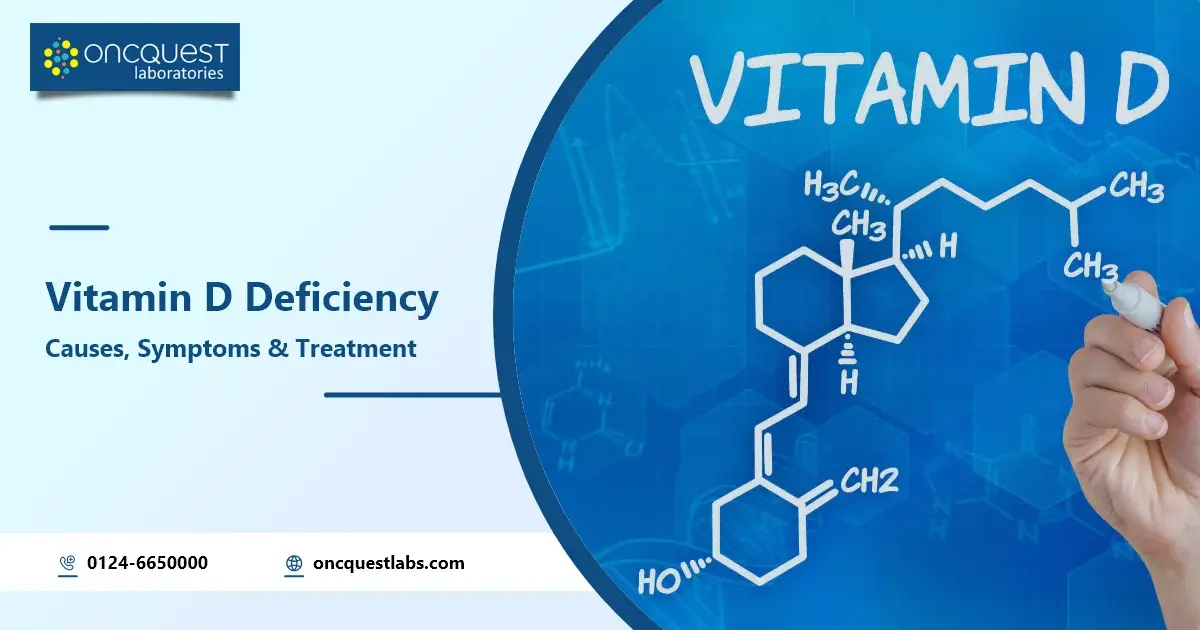Vitamin D is a fat-soluble nutrient that aids with the growth and improvement of our bones and teeth. It also improves resistance to certain diseases due to the manner in which it strengthens our immune system. Vitamin D is important for our mental fitness in addition to our physical health, as research has shown that it may alleviate signs associated with melancholy and anxiety.
If we end up nutrition-poor, we might begin to enjoy the side effects, such as bone pain, muscle weakness, despair, and fatigue. In this blog post, we are able to take a better look at this vital nutrition and answer the query: How long does it take to recover from nutrition D deficiency?
Contents
- 1 What is Vitamin D?
- 2 Importance of Vitamins D
- 3 Symptoms of Vitamin D Deficiency
- 4 Causes of Vitamin D Deficiency on Health
- 5 Recovery Time for Vitamin D Deficiency
- 6 Who Suffers from Vitamin D Deficiency?
- 7 How Long Does It Take To Recover From Vitamin D Deficiency?
- 8 Food that Contains Vitamin D
- 9 Home Remedies to Increase Vitamin D
What is Vitamin D?
Vitamin D is both a nutrient that can be received from supplements and meals and a hormone that our bodies clearly produce. This nutrition helps the body soak up and preserve phosphorus and calcium, the two minerals that are critical for building bone electricity.
Vitamin D can support our bodies in different ways. Studies have shown that it may:
•Reduce cancer cell boom
•Decrease the possibilities of coronary heart disease.
•Support our immune system.
•Regulate our moods
•Reduce the hazard of despair.
As you will understand, your fitness could be at risk if you grow to be nutrition-poor. You may want to experience bone aches, fatigue, muscle weakness, and occasional moods. You may also increase your chances of falling prey to infections and ailments due to weaknesses in your immune system.
So, for progressing health and to increase your chances of happiness, you should not go without your daily dose of vitamin D.
Thankfully, it is pretty easy to get vitamin D, as it’s certainly produced by using our pores and skin while we spend time in the sun. We can also eat ingredients that include this critical vitamin and take dietary supplements while the sun is hiding at the back of the clouds.
This is not to mention that you should not take dietary supplements when it’s sunny. As we mentioned in our article on diet D in the summer season, you would possibly nonetheless need a top-up of this important nutrition in case you use sunblock too often or if you have a tendency to cover up your skin.
So, are you getting enough vitamin D? The quantity you need depends on how vintage you are. If you are below 70 years of age, you need 15 mg of vitamin D in an afternoon. If you are over 70 or if you’re currently pregnant, it’s highly recommended that you get 20 mg of vitamin D in the afternoon.
Importance of Vitamins D
1. Strong Bones: Vitamin D helps your body absorb calcium, making your bones strong.
2. Immune System Boost: It supports your immune system, helping you fight off illnesses.
3. Cell Growth: Vitamin D plays a role in regulating cell growth and maintaining healthy cells.
4. Mood Regulation: It’s linked to mood regulation, and low levels may contribute to feelings of sadness.
5. Sunshine Vitamin: Sun exposure helps your body produce Vitamin D, but you can also get it from certain foods and supplements.
Symptoms of Vitamin D Deficiency
Recognizing signs and symptoms of vitamin D deficiency is crucial for taking appropriate action. Look out for:
1. Frequent Infections or Illnesses: Vitamin D supports immune health, and a deficiency may weaken your ability to fend off infections and illnesses caused by viruses and bacteria.
2. Bone and Back Pain: Insufficient vitamin D can compromise bone health by affecting the absorption of calcium and phosphorus, leading to an increased risk of pain and fractures.
3. Fatigue: While fatigue can have various causes, vitamin D deficiency has been associated with low energy levels, and studies suggest an improvement in energy with increased vitamin D intake.
4. Depression: Vitamin D is essential for serotonin production, the “happy hormone.” Regularly experiencing low moods may be linked to a deficiency in vitamin D.
5. Weight Gain: Vitamin D plays a role in producing leptin, a hormone that regulates hunger and reduces fat storage. Increased appetite and weight gain may indicate insufficient vitamin D levels affecting leptin production.
Causes of Vitamin D Deficiency on Health
Several factors can contribute to vitamin D deficiency:
1. Diet: Following a strict vegan diet may increase the risk of vitamin D deficiency since this vitamin is predominantly found in animal-based foods. While vegans can obtain vitamin D from sources like mushrooms, fortified cereals, and plant-based milk, supplementation or sun exposure may be necessary.
2. Lack of Sunlight: Spending most of your time indoors or avoiding outdoor activities, especially during winter when sunlight exposure is limited, can lead to vitamin D deficiency. Those who cover their skin for personal or religious reasons are also at risk.
3. Liver or Kidney Issues: Conditions affecting the liver or kidneys can hinder the conversion of vitamin D into its active form, contributing to deficiency. Aging can also reduce the body’s ability to process vitamin D through these organs.
4. Medications: Certain medications, such as laxatives, cholesterol-lowering drugs, steroids, and anti-seizure medications, may interfere with the absorption and breakdown of vitamin D. If experiencing severe deficiency while on medication, consulting a doctor is advisable to explore potential connections.
Recovery Time for Vitamin D Deficiency
Recovering from vitamin D deficiency typically takes about 4-6 weeks when using supplements, provided there are no underlying health issues slowing the process. Accelerate recovery by:
1. Increasing sun exposure
2. Consuming fortified foods
3. Including more mushrooms in your diet
4. Using a UV lamp if necessary
Avoid hastening the process by exceeding recommended supplement dosages. Prolonged high intake can lead to excessive calcium buildup, potentially causing harm to bones, kidneys, and the heart.
Who Suffers from Vitamin D Deficiency?
Various groups are more susceptible to vitamin D deficiency, including:
1. Vegans: Those following a strict vegan diet may have limited dietary sources of vitamin D found in animal-based foods.
2. Individuals with Limited Sun Exposure: People who spend most of their time indoors or cover their skin due to personal or religious reasons may lack sufficient sunlight exposure.
3. Older Adults: Aging can reduce the body’s ability to process vitamin D efficiently, increasing the risk of deficiency.
4. People with Liver or Kidney Issues: Conditions affecting the liver or kidneys may hinder the conversion of vitamin D into its active form, leading to deficiency.
5. Those on Medications: Certain medications, such as laxatives, cholesterol-lowering drugs, steroids, and anti-seizure medications, can interfere with vitamin D absorption and breakdown.
Understanding these risk factors helps identify individuals who may be more prone to vitamin D deficiency.
How Long Does It Take To Recover From Vitamin D Deficiency?
Recovery from vitamin D deficiency typically takes around 4-6 weeks once supplementation begins, assuming no underlying health issues that might impede the process. Factors like sun exposure, dietary adjustments, and lifestyle changes can potentially expedite the recovery. However, it’s crucial to avoid excessive supplementation, as it can lead to adverse effects on health over time. Always consult with a healthcare professional for personalized guidance.
Food that Contains Vitamin D
Foods rich in vitamin D include:
1. Fatty Fish: Salmon, mackerel, and tuna are excellent sources.
2. Egg Yolks: They contain small amounts of vitamin D.
3. Beef Liver: A good source of vitamin D, but consumption should be moderate due to high vitamin A content.
4. Cheese: Some types, like Swiss and cheddar, provide small amounts of vitamin D.
5. Fortified Foods: Many products, such as cereals, plant-based milk, and orange juice, are fortified with vitamin D.
6. Mushrooms: Certain varieties, like shiitake and maitake, contain vitamin D, especially when exposed to sunlight.
7. Cod Liver Oil: A potent source, often available in supplement form.
Incorporating these foods into your diet helps maintain adequate vitamin D levels.
Home Remedies to Increase Vitamin D
To naturally boost vitamin D levels, consider these home remedies:
1. Sun Exposure: Spend time outdoors in sunlight, especially during midday. Expose your face, arms, and legs without sunscreen for about 10-30 minutes, depending on skin type and intensity of sunlight.
2. Fatty Fish: Include fish like salmon, mackerel, and tuna in your diet, as they are rich in vitamin D.
3. Mushrooms: Consume mushrooms, particularly those exposed to sunlight, as they can provide some vitamin D.
4. Egg Yolks: Incorporate egg yolks into your meals, as they contain small amounts of vitamin D.
5. Fortified Foods: Opt for foods like fortified cereals, plant-based milk, and orange juice to increase vitamin D intake.
6. UV Lamps: In consultation with a healthcare professional, consider using UV lamps designed for safe vitamin D synthesis.
Always consult with a healthcare provider before making significant changes to your diet or lifestyle.
Conclusion
Vitamin D deficiency is frequently encountered, yet its symptoms are subtle and nonspecific, making it challenging to distinguish from other health conditions. If you suspect a deficiency, consult a healthcare professional for a blood test. Treatment typically involves supplements and adjustments to diet and lifestyle.





